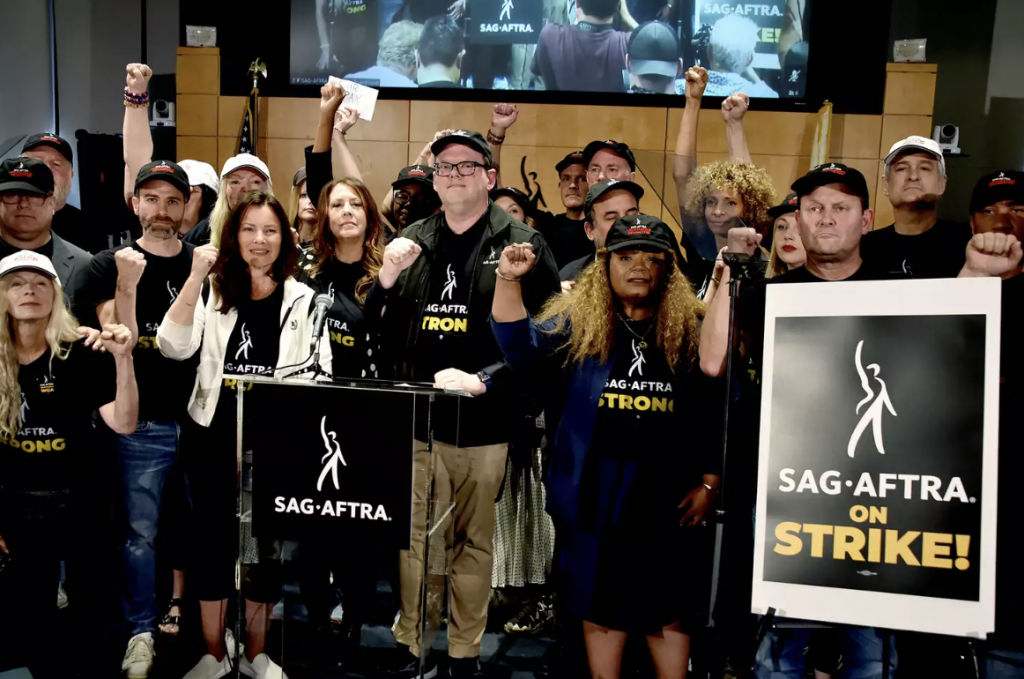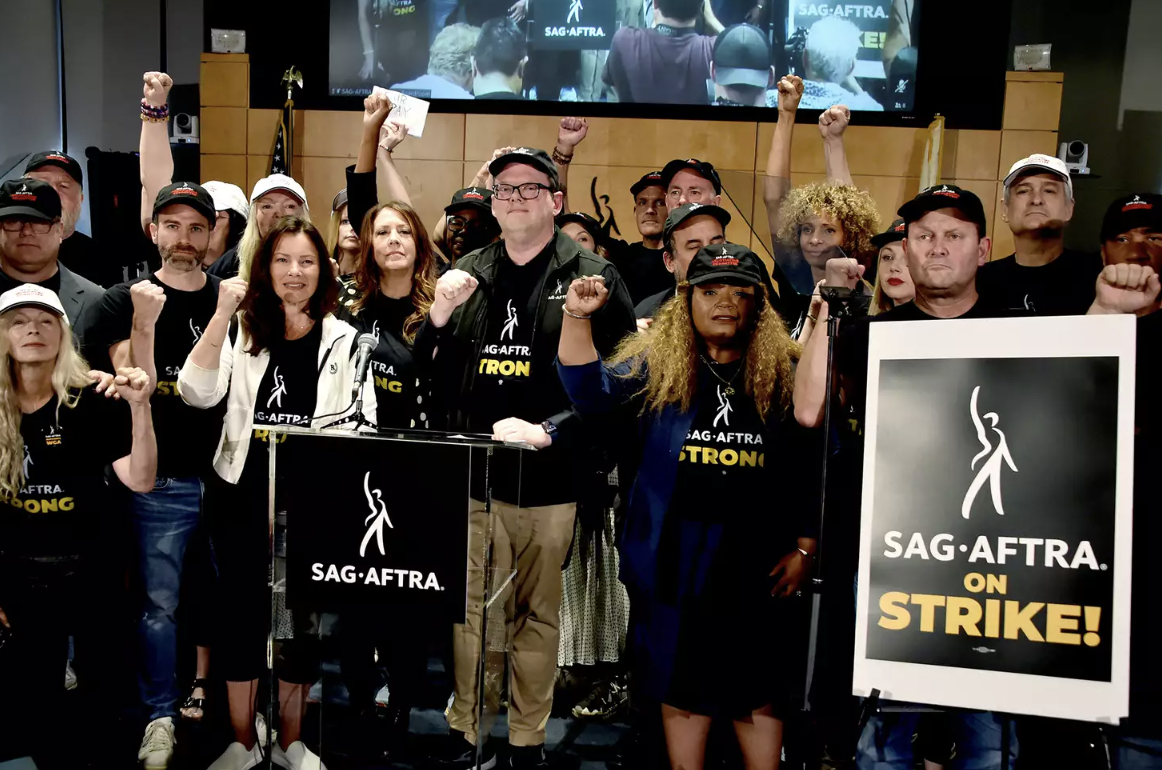By Kendall Shamus, Staff Writer
The SAG-AFTRA Strike is finally over after 118 days of actors joining writers on the picket lines for the first time in 63 years. A tentative deal with the Alliance of Motion Picture and Television Producers was approved on Nov. 8. The SAG-AFTRA negotiators came to a unanimous vote with a deal. The deal includes the first-ever protections for actors against artificial intelligence and a historic pay increase. The deal will see most minimums increase by 7 percent. This two percent more than the increases received by the Writers Guild of America and the Directors Guild of America.

Senior musical theatre major Chloe Caustrita shared thoughts on how the media has shaped perceptions of the SAG-AFTRA strike.
“Depending on the narrative presented, it could influence how people view the actors’ demands, industry practices, and the need for change. Balanced and informative coverage can foster understanding, while biased reporting might polarize opinions,” Caustrita explained.
The media, whether it was on TV or social media, allowed for actors a part of the union to be updated on the state of the strike and also allowed non-unionized actors to learn about the strike. Many non-unionized actors stood in solidarity with SAG-AFTRA members during this time.
Caustrita further highlighted the importance of media coverage.
“Overall, media has the power to shape public perception and contribute to the broader conversation about the entertainment industry,” Caustrita said.
Many famous actors used social media as a platform to voice their struggles on how the strike was affecting them. Actors shared how the reparations from each episode from the TV show they were on were so low and were given very minimal payout from each rerun.
This strike obviously affected many young actors who are trying to break into the film and TV industry.
Caustrita is one of the young actors pursuing this career.
“The end of the SAG-AFTRA strike could bring more stability to the industry, ensuring smoother productions and potentially providing better opportunities for actors. It might lead to improved working conditions and compensation, positively impacting your career in the long run,” she said.
The deal that is in the agreement should hopefully help actors have a more positive experience when on set for TV shows and movies.
Both TV shows and movies halted mid-production during the strike to allow for a new agreement to come to fruition. Junior nursing major Bella Vano spoke about which TV shows she is excited to see filming again for new episodes to air.
“I am excited for ‘Stranger Things’ to start filming again. This is the last season of the show and I think it is going to be the best one yet,” Vano said.
“Stranger Things” is among one of the popular shows that stopped filming due to the strike and the actors stood at the picket fences with the Writer’s Guild of America.
Since shows stopped production, it has led viewers to consistently watch reruns since nothing new was airing on streaming services or live television.
“During the strike, I have been rewatching shows (such as Stranger Things) because all filming has been paused. I am glad that the strike is over and I am very happy that everyone’s jobs who were put on pause are able to return to work. They are now able to provide for themselves and their families again fully,” Vano said.
Now that the strike is over, TV and movies are back to filming with these new agreements in place. Many hope that the deal that was agreed upon will stay for years to come so the entertainment industry can be fully functioning for the foreseeable future.




Be First to Comment